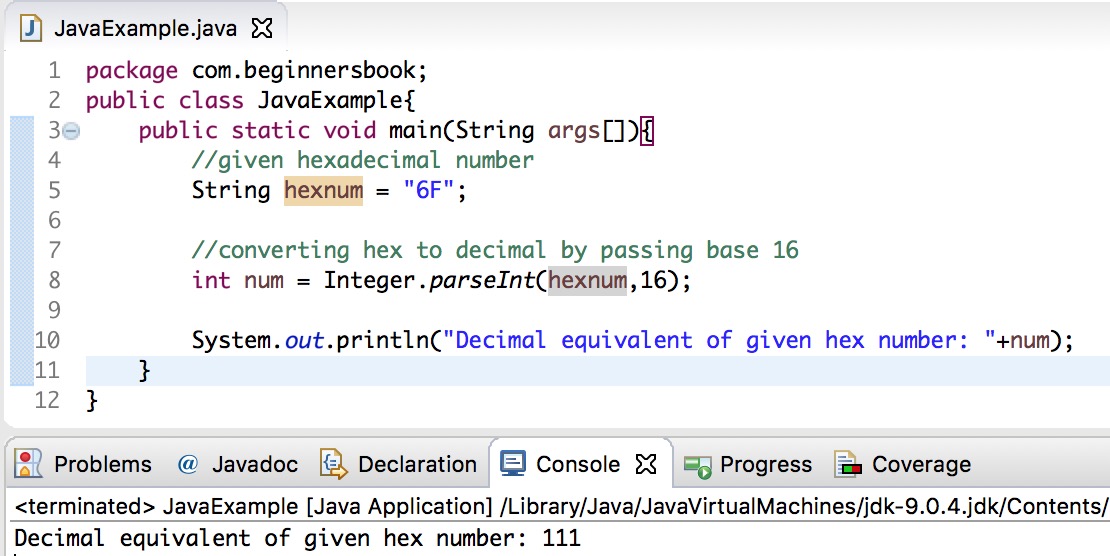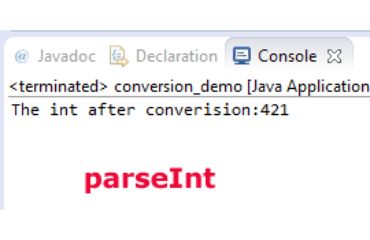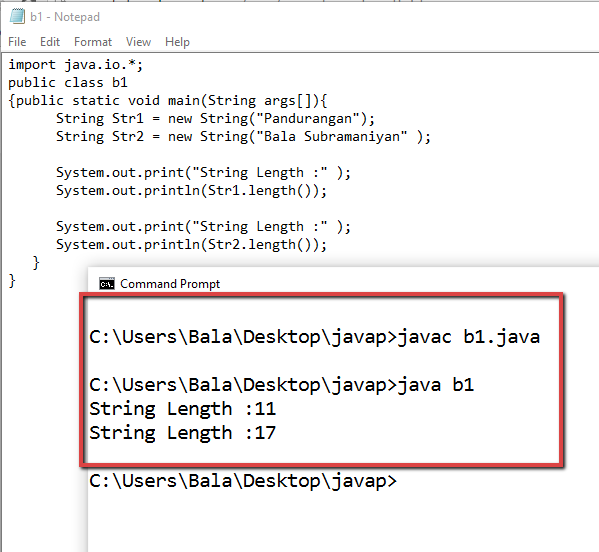

- #JAVA CONVERT STRING TO INT WITHOUT PARSEINT HOW TO#
- #JAVA CONVERT STRING TO INT WITHOUT PARSEINT 32 BIT#
- #JAVA CONVERT STRING TO INT WITHOUT PARSEINT SERIES#
Special-casing power-of-two bases also feels odd. In this context, it's a false intuition that leads you to expect the behaviour you describe: if you were parsing any other base besides base 2 (or maybe the other commonly used power-of-two bases), would you expect the first digit of the input to affect the sign? Obviously you wouldn't having, say, parseInt("2147483648") return -2147483648 by design would be PHP levels of crazy.
#JAVA CONVERT STRING TO INT WITHOUT PARSEINT HOW TO#
They're meant to support parsing a human-readable reprentation, which is an optional - (or +) for the sign, followed by the absolute value of a number. How To Convert String To Int Without Using Library Functions In C YouTube Java Program To Convert String To Int BTech Geeks Si cle Co teux Contraction How To. (-ish.) Java only supports signed integers, and parseInt() and friends aren't supposed to parse two's complement bit patterns – and thus interpret the 1 or (possibly implied) 0 at the 32nd position from the right as the sign.
#JAVA CONVERT STRING TO INT WITHOUT PARSEINT 32 BIT#
I also made sure to add exceptions for when an invalid binary number is entered.Your code fails because it tries to parse a number that would require 33 bits to store as a signed integer.Ī signed int is a 32 bit value in two's complement representation, where the first bit will indicate the sign of the number, and the remaining 31 bits the value of the number. I took into account that the number can both be a positive and negative number and added checks for those cases. There may be a nicer way of doing this, however this is the solution that I came up with. Since hex values are often large numbers, such as sha256 or sha512 values, they will easily overflow an int and a long.While converting to a byte array is an option as other answers show, BigInterger, the often forgotten class in java, is an option as well. ("Continue using the calculator? Only input Y or N") An additional option to the ones suggested, is to use the BigInteger class. But if you want the result for any string of any length to fit in a single Java int value, then you are looking for a hash function, of which there are.

The number format with dots as thousands-separators is used, for example, in Germany.


String str '10.000.000' int number Integer.parseInt (str.replace ('.', '')) What youre doing is: parsing a number with the conventions of a country that is not the US.
#JAVA CONVERT STRING TO INT WITHOUT PARSEINT SERIES#
Since any data is, after all, stored as a series of bits, its more of a reinterpretation than a conversion. This should give you what youre looking for. The following examples assume you want the result to be 0. ("The decimal number is: " + Integer.parseInt(binaryString, 2)) There are any number of ways to convert a string to a number and maintain uniqueness. Int(String) returns an optional as well, so it kind of depends how you want to handle that part of it. How would I be able to use a different method for calculating binary to decimal and implement it into my code? In the case of binary to decimal, I found out that I could use parseint, but I saw other methods that didn't use it, so I tried to implement them into my code, but it didn't work for me and I got stumped. I am new to java and I was learning how to convert from binary to decimal and vice versa.


 0 kommentar(er)
0 kommentar(er)
